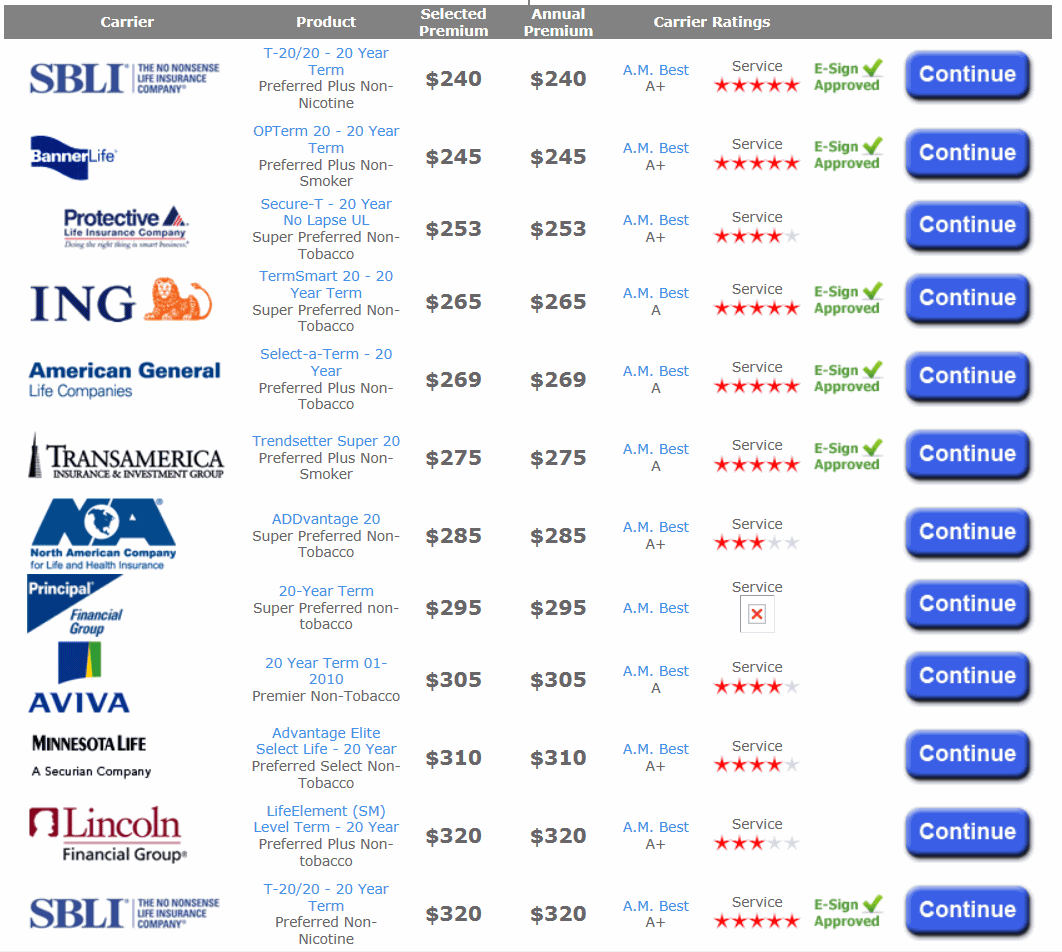Compare insurance quotes takes center stage as a vital step in securing the right coverage at the most favorable price. This comprehensive guide delves into the intricacies of insurance comparison, providing valuable insights and practical strategies to empower you to make informed decisions.
Navigating the complex world of insurance can be daunting, but understanding the benefits of comparing quotes is crucial. By diligently comparing quotes from multiple providers, you can potentially save a significant amount of money on your premiums without compromising the essential protection you need. This guide equips you with the knowledge and tools to navigate the process effectively, enabling you to secure the best possible insurance coverage for your unique circumstances.
Importance of Comparing Insurance Quotes

Shopping around for insurance quotes is a crucial step in securing the best coverage at the most affordable price. By taking the time to compare quotes from multiple insurers, you can potentially save hundreds or even thousands of dollars on your annual premiums.
Financial Benefits of Comparing Insurance Quotes
Comparing quotes from different insurance companies allows you to identify the most competitive rates and coverage options available. This can lead to significant financial savings, particularly over the long term.
- Lower Premiums: By comparing quotes, you can often find insurers offering lower premiums for the same coverage, allowing you to keep more money in your pocket.
- More Coverage for the Same Price: In some cases, you might find insurers offering more comprehensive coverage for the same price as a competitor’s more basic plan.
- Discounts and Special Offers: Comparing quotes can help you uncover discounts and special offers that you might not be aware of, further reducing your premium.
Potential Risks of Not Comparing Quotes, Compare insurance quotes
Failing to compare insurance quotes can result in paying significantly higher premiums than necessary, leaving you financially vulnerable.
- Overpaying for Coverage: Not comparing quotes can lead to unknowingly paying higher premiums for the same coverage offered by other insurers.
- Limited Coverage Options: Choosing an insurer without comparing quotes might limit your access to diverse coverage options and discounts that could be beneficial to your needs.
- Missed Opportunities for Savings: By not comparing quotes, you may miss out on significant savings opportunities, potentially impacting your financial planning and budgeting.
Real-World Examples of Savings
Many individuals have experienced substantial savings by taking the time to compare insurance quotes.
“I recently switched car insurance providers after comparing quotes online. I was able to save over $300 per year on my premium while maintaining the same coverage.” – John Smith, a satisfied customer.
“I was surprised to find that my current homeowners insurance policy wasn’t the most competitive in the market. After comparing quotes, I found a new insurer that offered the same coverage for almost $200 less per year.” – Sarah Jones, a homeowner who saved money.
Types of Insurance to Compare
Comparing insurance quotes is essential for finding the best coverage at the most affordable price. But with so many different types of insurance available, it can be overwhelming to know where to start. This section will explore the main categories of insurance that individuals and businesses commonly need to compare.
Personal Insurance
Understanding the different types of personal insurance can help you make informed decisions about your coverage. Here is a breakdown of common personal insurance categories:
| Insurance Type | Key Features | Common Coverage Options | Importance of Comparing Quotes |
|---|---|---|---|
| Auto Insurance | Protects against financial losses due to accidents, theft, or damage to your vehicle. | Liability coverage, collision coverage, comprehensive coverage, uninsured/underinsured motorist coverage, personal injury protection (PIP). | Different insurers offer varying premiums and coverage options, making comparison crucial to secure the best deal. |
| Homeowners/Renters Insurance | Provides financial protection for your home and belongings against damage or loss due to fire, theft, natural disasters, or other covered events. | Dwelling coverage, personal property coverage, liability coverage, additional living expenses coverage. | Comparing quotes helps you find the right coverage at a price that fits your budget, ensuring you are adequately protected. |
| Health Insurance | Covers medical expenses, including doctor visits, hospital stays, prescription drugs, and preventive care. | Individual plans, employer-sponsored plans, government-sponsored plans (Medicare, Medicaid). | Health insurance premiums and coverage options vary widely, so comparing quotes is essential to find the best plan for your needs and affordability. |
| Life Insurance | Provides financial protection for your loved ones in the event of your death, helping them cover expenses like funeral costs, mortgage payments, or other financial obligations. | Term life insurance, whole life insurance, universal life insurance. | Comparing quotes helps you find the right type of life insurance policy with the appropriate death benefit and premium, ensuring your family is financially secure. |
| Disability Insurance | Provides income replacement if you are unable to work due to illness or injury. | Short-term disability insurance, long-term disability insurance. | Comparing quotes ensures you find a policy with the right coverage amount and duration to protect your income in case of disability. |
Business Insurance
Businesses need various types of insurance to protect themselves from financial risks. Here are some key business insurance categories:
| Insurance Type | Key Features | Common Coverage Options | Importance of Comparing Quotes |
|---|---|---|---|
| General Liability Insurance | Protects your business from claims of negligence, property damage, or bodily injury caused by your business operations or employees. | Bodily injury liability, property damage liability, personal and advertising injury liability. | Comparing quotes helps you find the right coverage limits and premiums to ensure adequate protection for your business. |
| Workers’ Compensation Insurance | Covers medical expenses, lost wages, and rehabilitation costs for employees injured on the job. | Medical benefits, lost wages, disability benefits, death benefits. | Comparing quotes helps you find a policy with the right coverage and premiums to protect your business from potential claims. |
| Commercial Property Insurance | Protects your business property, including buildings, equipment, and inventory, against damage or loss due to fire, theft, natural disasters, or other covered events. | Building coverage, business personal property coverage, business income coverage, extra expense coverage. | Comparing quotes helps you find the right coverage limits and premiums to ensure adequate protection for your business property. |
| Commercial Auto Insurance | Protects your business vehicles from accidents, theft, or damage, and covers liability claims arising from accidents involving your vehicles. | Liability coverage, collision coverage, comprehensive coverage, uninsured/underinsured motorist coverage. | Comparing quotes helps you find the right coverage limits and premiums to protect your business vehicles and minimize financial risks. |
Factors Influencing Insurance Quotes: Compare Insurance Quotes

Your insurance premiums are not set in stone. Several factors influence how much you pay for your coverage. Understanding these factors can help you make informed decisions to potentially lower your premiums.
Age
Your age plays a significant role in determining your insurance premiums. Generally, younger drivers are considered riskier and pay higher premiums. As you age and gain more driving experience, your premiums tend to decrease. This is because younger drivers have a higher likelihood of being involved in accidents, due to factors such as inexperience and risk-taking behavior. Insurance companies use actuarial data to determine the risk associated with different age groups. However, there are exceptions to this general trend. For example, drivers in their late teens and early twenties might see a temporary decrease in their premiums if they have a good driving record and have completed a defensive driving course.
Location
Where you live can also affect your insurance premiums. Insurance companies consider the risk of accidents and theft in different areas. Areas with high crime rates or heavy traffic tend to have higher insurance premiums. For instance, living in a city with a high population density and congested roads could lead to higher premiums compared to living in a rural area with lower traffic volume.
Driving History
Your driving history is a major factor in determining your insurance premiums. A clean driving record with no accidents or traffic violations will generally result in lower premiums. Conversely, a history of accidents, speeding tickets, or DUI convictions will increase your premiums. Insurance companies view a history of accidents as an indicator of risk, and they adjust premiums accordingly to reflect the higher likelihood of future claims. In addition to accidents and violations, factors like driving record length and type of vehicle driven can also influence premiums. For example, drivers with longer driving histories and a consistent record of safe driving might qualify for discounts.
Credit Score
Your credit score can surprisingly impact your insurance premiums. While it might seem unrelated, insurance companies use credit scores as a proxy for financial responsibility. Individuals with good credit scores are often seen as more reliable and responsible, which translates to lower insurance premiums. This is because individuals with good credit scores are less likely to file claims or default on payments. However, the impact of credit scores on insurance premiums varies by state and insurance company. It is important to check with your insurer about their specific policies and practices regarding credit scores.
Deductibles and Coverage Limits
Your deductible and coverage limits are crucial factors that directly affect your insurance premiums. A deductible is the amount you pay out of pocket before your insurance coverage kicks in. Higher deductibles generally lead to lower premiums. This is because you are taking on more financial responsibility in case of an accident. Conversely, lower deductibles result in higher premiums, as the insurance company is assuming more financial risk. Coverage limits refer to the maximum amount your insurance company will pay for a covered event. Higher coverage limits generally result in higher premiums. This is because you are seeking more comprehensive protection, and the insurance company is taking on a greater financial risk.
Lifestyle Choices
Your lifestyle choices can also influence your insurance premiums. Driving habits, such as driving aggressively or frequently driving long distances, can increase your risk of accidents and, consequently, your premiums. Hobbies and activities that involve higher risk, such as motorcycling or participating in extreme sports, can also lead to higher premiums. Insurance companies may assess your lifestyle choices to determine your risk profile and adjust premiums accordingly.
Closure
Armed with the knowledge and strategies Artikeld in this guide, you are now equipped to confidently compare insurance quotes and make informed decisions that align with your specific needs and financial goals. Remember, comparing quotes is not just about finding the cheapest option but securing the most comprehensive coverage at a price that fits your budget. By taking the time to compare, you can gain peace of mind knowing that you have secured the best possible insurance protection for yourself, your family, and your assets.
Comparing insurance quotes can save you a significant amount of money, especially when it comes to auto insurance. Understanding the factors that influence auto insurance price , such as your driving history, vehicle type, and location, can help you identify the best deals.
By comparing quotes from different insurers, you can ensure you’re getting the most competitive rates for the coverage you need.
